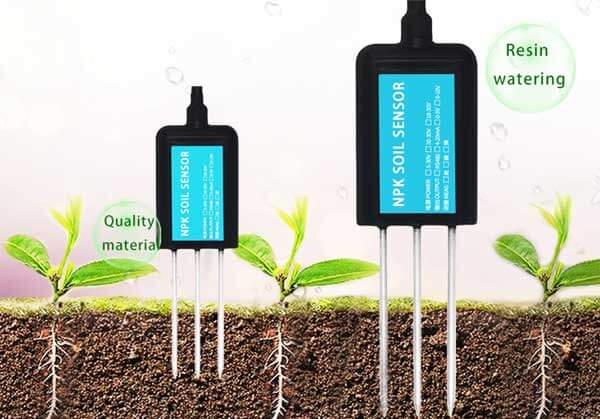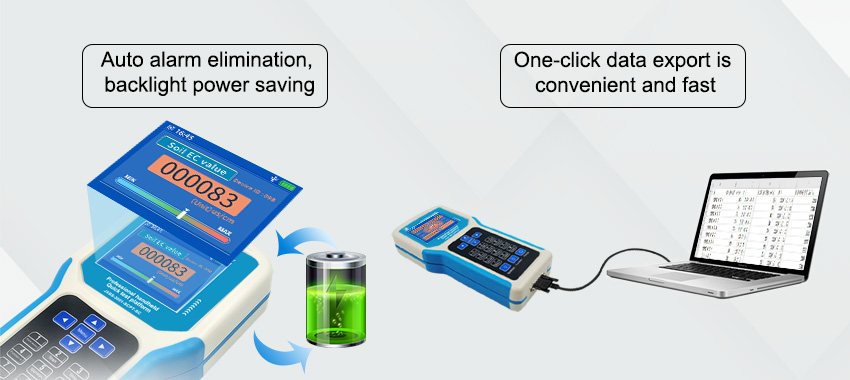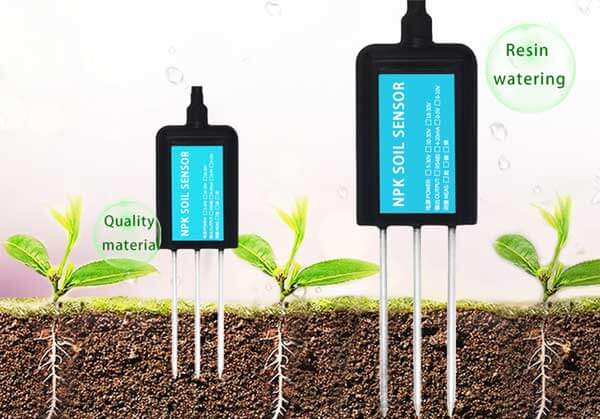Precision agriculture is revolutionizing the way farmers approach crop production. By leveraging technology and data-driven insights, precision agriculture maximizes productivity while minimizing resource waste. One of the key technological advancements driving this transformation is soil sensor technology. Soil sensors enable farmers to monitor soil conditions in real-time, providing valuable data that guides decision-making related to irrigation, fertilization, and overall crop management. In this article, we will explore the role of soil sensors in precision agriculture, their applications, and the innovative advancements that are shaping the future of farming.

Understanding Soil Sensor Technology:
Soil sensors are devices designed to measure various soil parameters such as moisture content, temperature, nutrient levels, pH, and salinity. These sensors can be either directly inserted into the ground or placed remotely to collect data from different depths. By continuously monitoring soil conditions, farmers gain valuable insights about the health and fertility of their land, allowing them to make informed decisions and optimize agricultural practices.
Optimizing Irrigation Efficiency:
Water management is a critical aspect of precision agriculture, particularly in regions prone to drought or water scarcity. Soil sensors play a crucial role in optimizing irrigation efficiency by accurately measuring soil moisture levels. With real-time data on moisture content, farmers can determine the precise timing and amount of water required, preventing both over-irrigation and under-irrigation. This not only conserves water resources but also promotes healthier plant growth and higher crop yields.
Enhancing Nutrient Management:
Proper nutrient management is vital for achieving optimal crop growth and minimizing environmental impact. Soil sensors provide farmers with detailed information about nutrient levels in the soil, enabling them to customize fertilizer applications accordingly. By knowing the exact nutrient requirements of their crops, farmers can avoid over-fertilization, reducing costs and minimizing nutrient runoff. Furthermore, soil sensors help identify nutrient deficiencies, allowing farmers to address them promptly and ensure healthy plant development.
Monitoring Soil Health:
Maintaining soil health is crucial for sustainable agriculture. Soil sensors offer valuable insights into various soil properties, including pH levels, organic matter content, and salinity. By monitoring these parameters, farmers can assess the overall health of their soil and detect potential issues early on. This allows for proactive measures such as soil amendment or pH adjustment, ensuring that crops have optimal growing conditions and preventing the spread of diseases or pests.
Precision Planting and Seeding:
Precision planting involves optimizing seed placement, spacing, and timing to maximize crop yield. Soil sensors play an integral role in this process by providing critical information about soil moisture and temperature. These factors significantly impact seed germination and early plant development. By using soil sensors to assess soil conditions, farmers can make informed decisions about planting and seeding practices. This leads to improved germination rates, better crop establishment, and ultimately higher yields.
Innovative Advancements in Soil Sensor Technology:
In recent years, there have been significant advancements in soil sensor technology, revolutionizing data collection and decision-making in precision agriculture. Wireless soil sensors have emerged, allowing farmers to monitor soil conditions remotely and receive real-time updates through mobile applications or online platforms. This eliminates the need for physical visits to the fields, saving time and resources. Furthermore, advanced soil sensors can now measure multiple parameters simultaneously, providing a comprehensive overview of soil conditions with a single device. These technological advancements enhance the usability and effectiveness of soil sensors, making them more accessible and user-friendly for farmers of all scales.

Conclusion:
Precision agriculture is transforming the agricultural landscape by harnessing the power of technology and data. Soil sensor technology plays a pivotal role in this transformation, enabling farmers to make data-driven decisions and optimize resource usage. By providing real-time data on soil moisture, nutrient levels, and other vital parameters, soil sensors empower farmers to optimize irrigation, fertilization, and planting practices. The innovative advancements in soil sensor technology, such as wireless capabilities and multi-parameter measurement, are further driving the adoption of precision agriculture. It is imperative for farmers, researchers, and policymakers to embrace these innovations and integrate soil sensors into farming practices to achieve sustainable, efficient, and high-yielding crop producti
